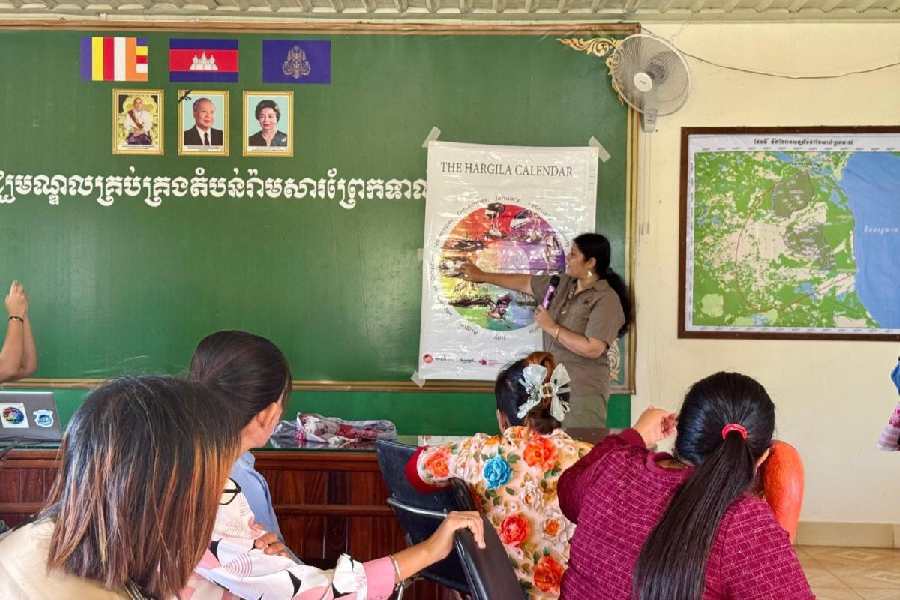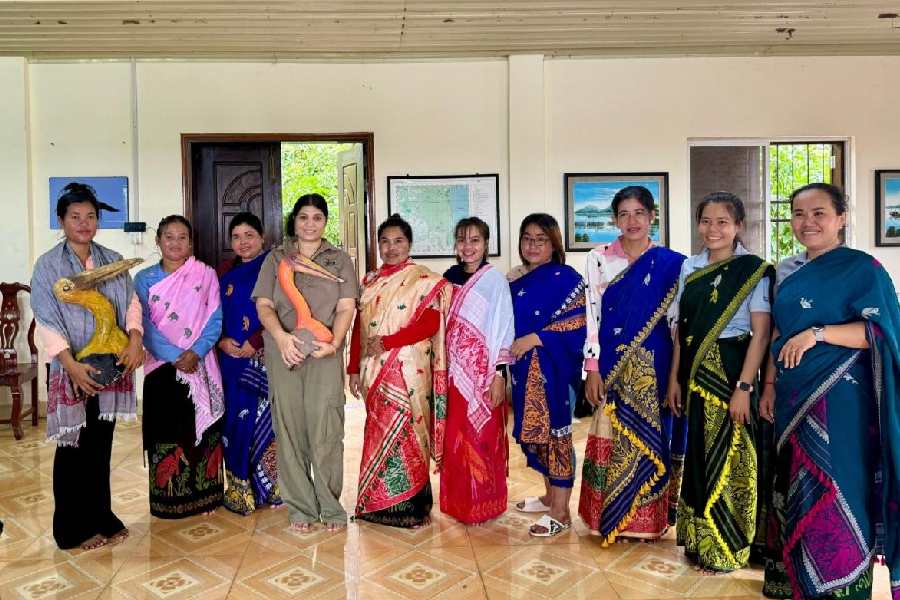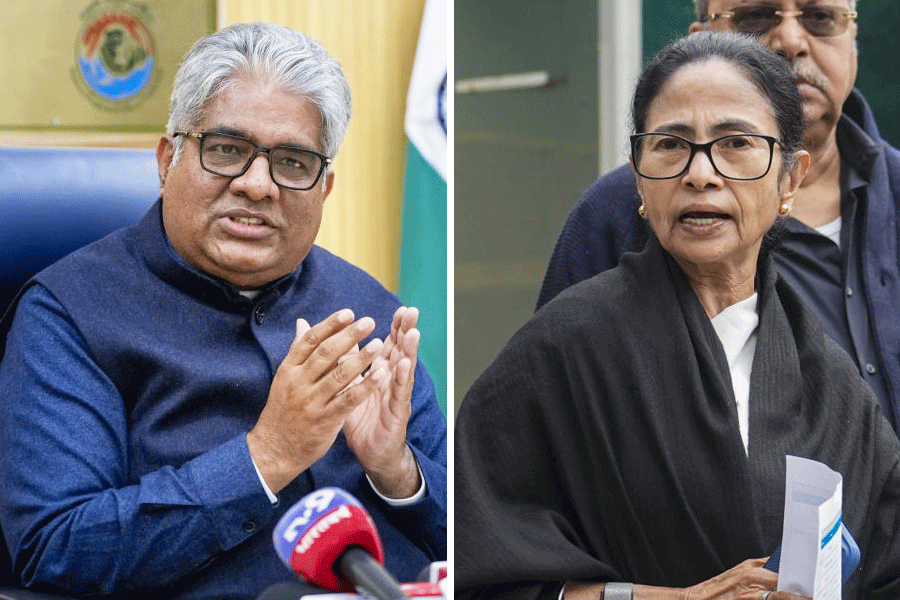A Guwahati-based wildlife biologist, widely acclaimed for her community-led conservation work for the endangered greater adjutant stork, is collaborating with a Cambodia-based non-profit to train 20 women conservationists and park rangers on stork and biodiversity protection.
The greater adjutant stork, locally known in Assam as hargila, has been at the centre of Dr Purnima Devi Barman’s conservation efforts. Barman, a UNEP Champion of the Earth and senior biologist with biodiversity group Aaranyak, was hosted by the Wildlife Conservation Society (WCS) Cambodia to lead a training programme on July 28 at the Prek Toal Bird Sanctuary, a Ramsar site within Cambodia’s Tonle Sap Biosphere Reserve.
In a post on X, Barman wrote: “From Assam to Cambodia: a cross-border collaboration for stork conservation. I had the honour of training 20 incredible women conservationists, community leaders and park rangers from Prek Toal on hargila conservation and biodiversity protection efforts.”
On Wednesday, Barman added: “A landmark outcome of the training was the formation of the Sisters and Brothers of Storks — a new global collaborative network that will work alongside our women conservation brigade to protect not only the greater adjutant globally but also other stork species, fostering a cross-border alliance for inclusive, community-based conservation.”

Purnima Devi Barman during the training programme in Cambodia
Aaranyak, a leading biodiversity organisation in northeast India, said the day-long training aimed to promote the women-led conservation model that has successfully protected the greater adjutant in Assam under Barman’s leadership.
Phearun Sun, WCS Tonle Sap landscape programme manager, who coordinated the event, expressed enthusiasm for future collaborations with Assam’s hargila team and hailed Barman’s “behaviour change model” as an inspiration for community-driven conservation.
“This is not just about saving a species. It’s about empowering communities, especially women, to become guardians of nature by weaving conservation into the fabric of their lives,” Barman said.
During the sessions, she integrated traditional knowledge, cultural heritage, and ecological science to inspire Cambodia’s women leaders to develop community-based conservation strategies. Educational posters designed by Barman, showcasing hargila behaviour, were unveiled by local community members and rangers.
Aaranyak described the event as a milestone in South-South cooperation for biodiversity conservation, gender equality in wildlife programmes, and Assam–Cambodia ecological ties.
French ties
In April 2024, a school in France — Lycée des Lumières, located on Mayotte island — signed a two-year agreement with Barman to replicate her community-driven conservation model. The school reached out after learning about the Hargila Army, a grassroots women’s collective led by Barman that has helped increase hargila numbers in Assam.
Formed in 2014 at Dadara and Pachariya villages in Kamrup district, the Hargila Army grew out of Barman’s 2007 initiative involving local women. Since then, Assam’s hargila population has risen from around 450 to over 1,800.
Earlier this year, Time magazine featured Barman in its Women of the Year 2025 list, recognising her as one of 12 global women leaders “working toward a better, more equal world” — a list that included actress Nicole Kidman.










